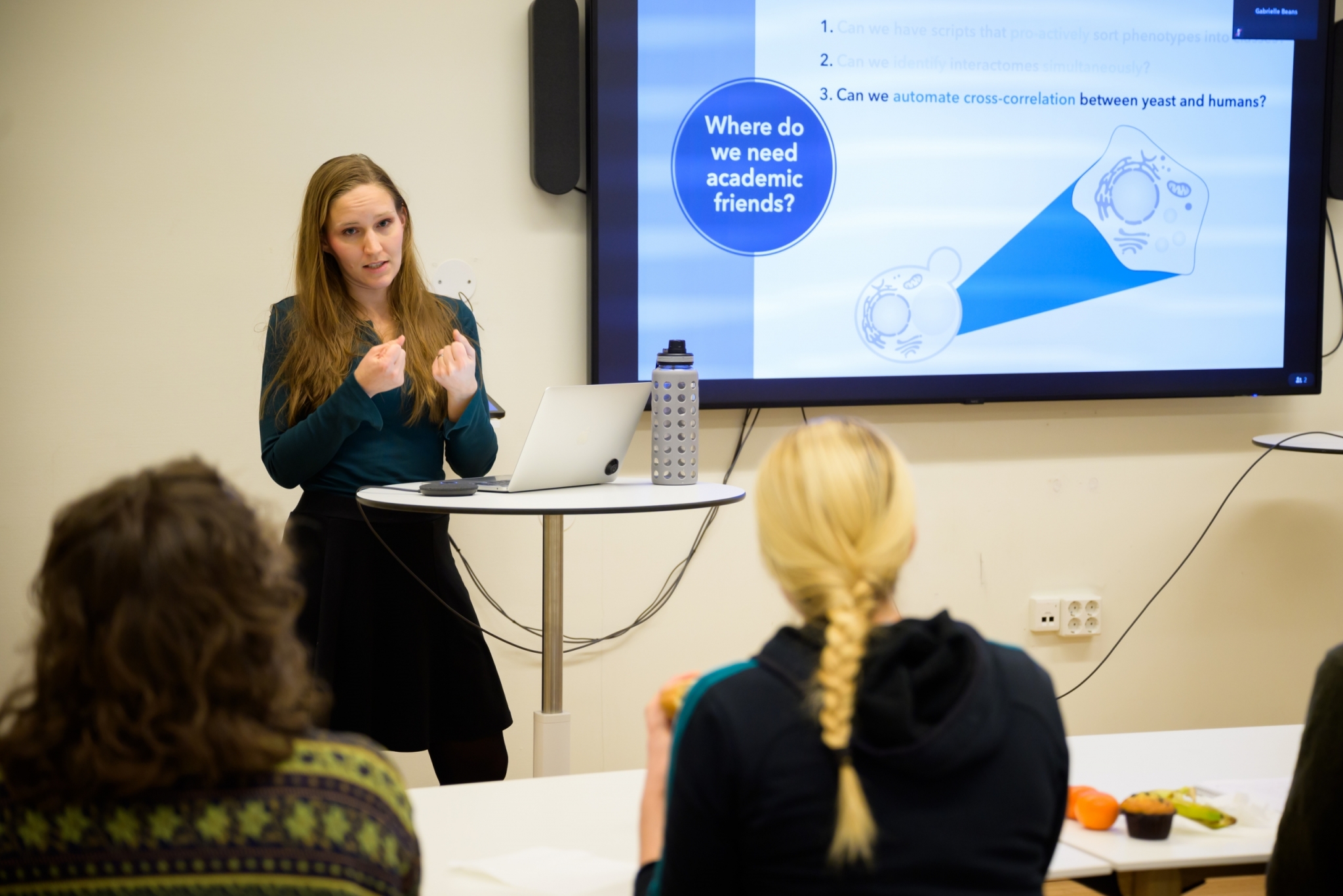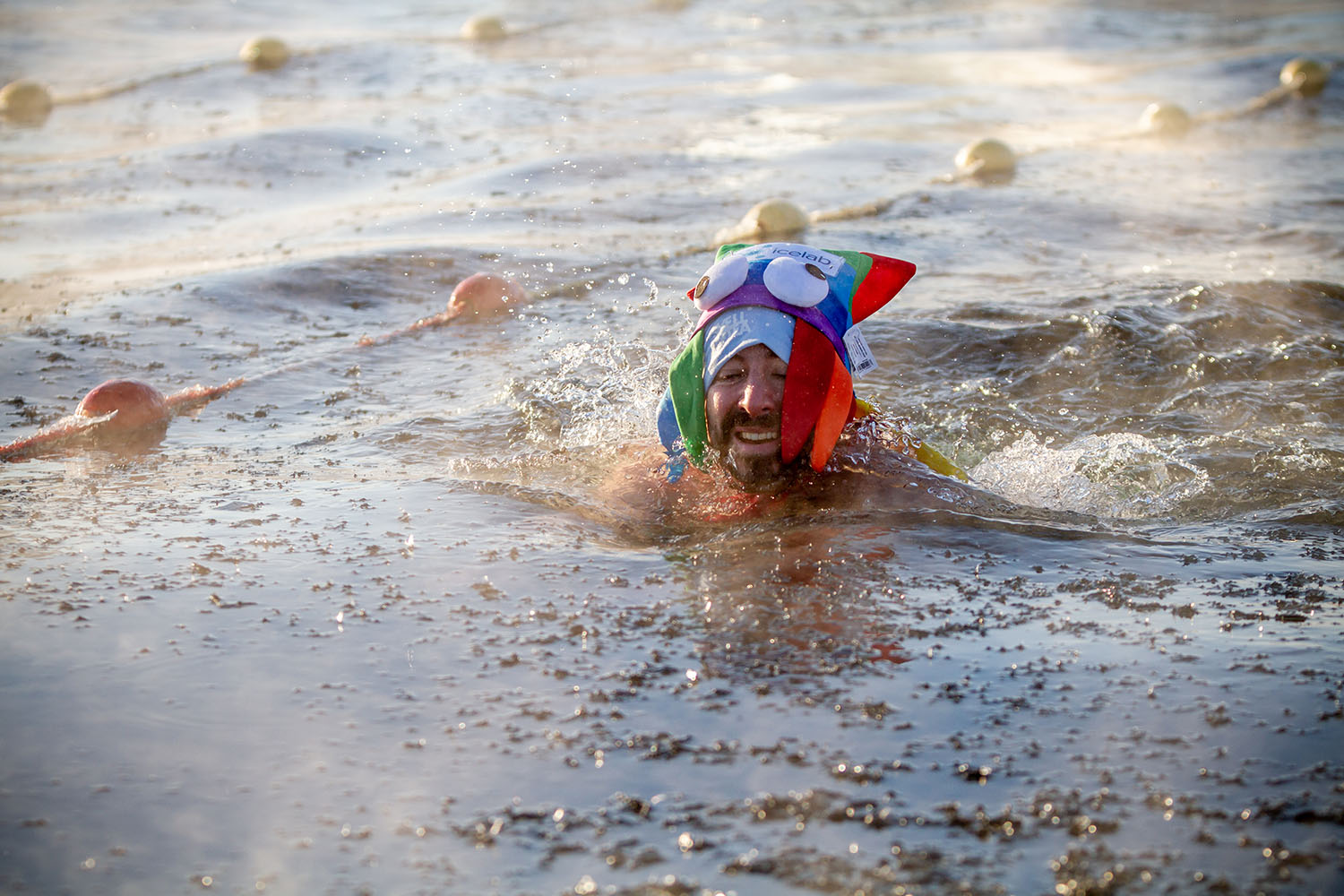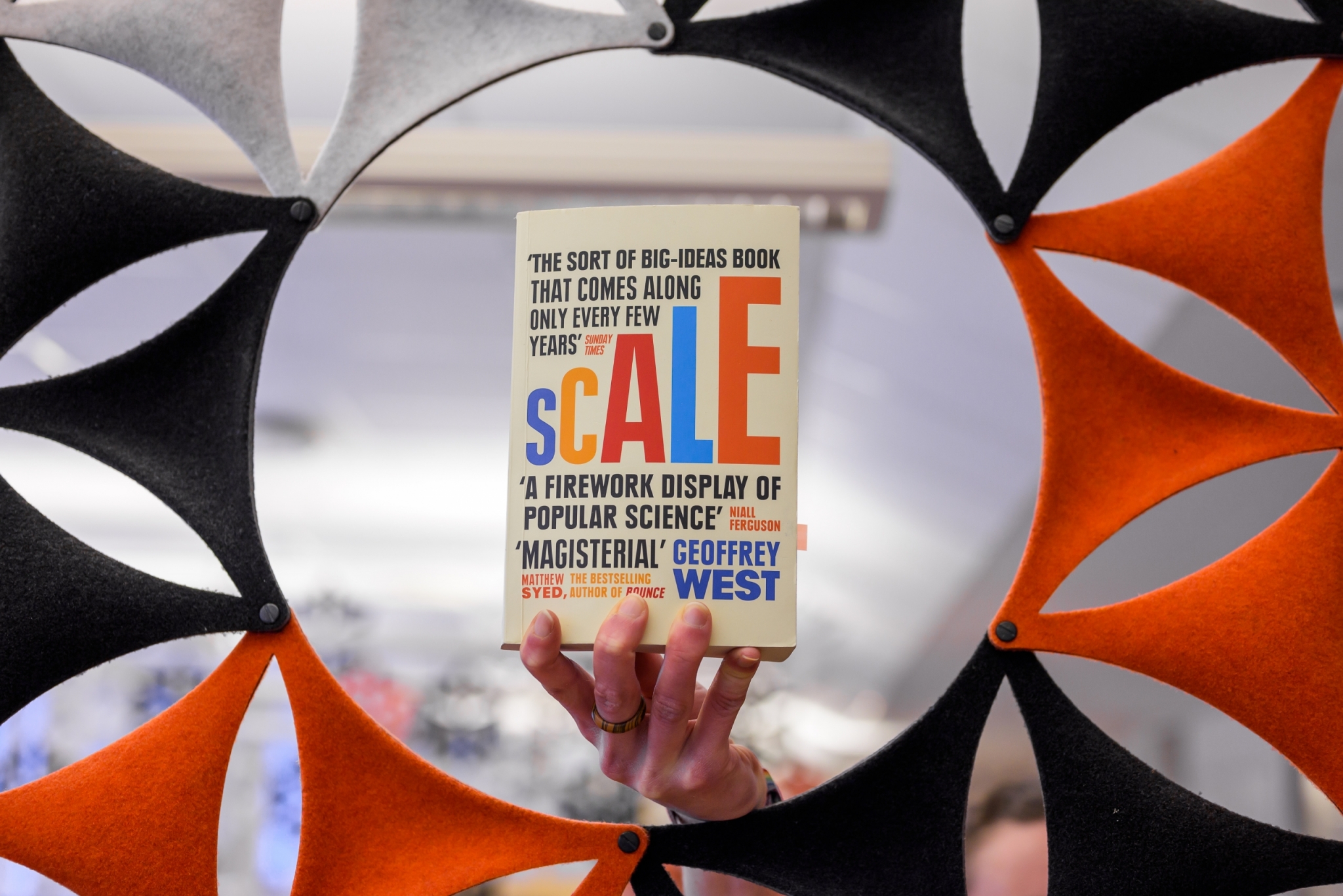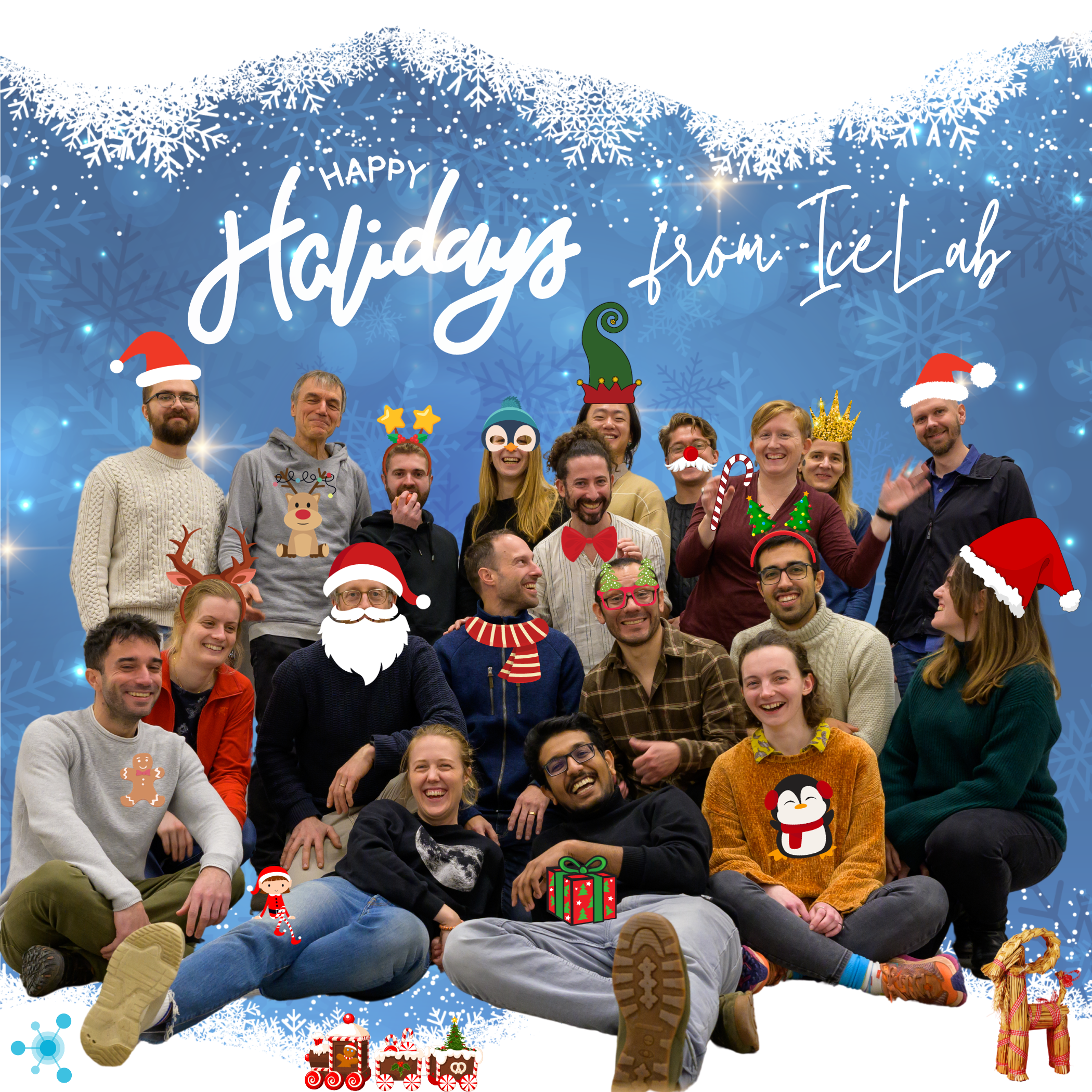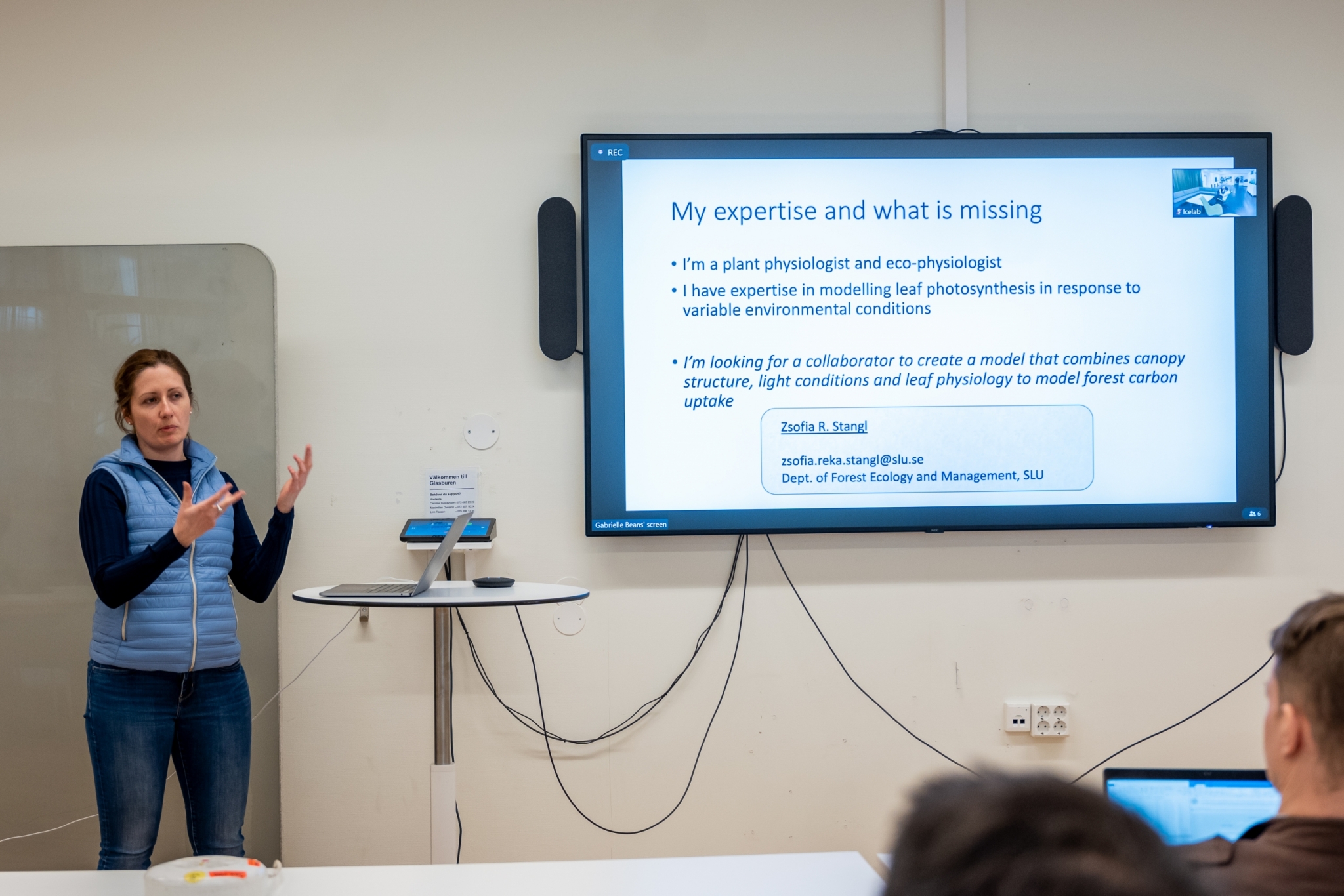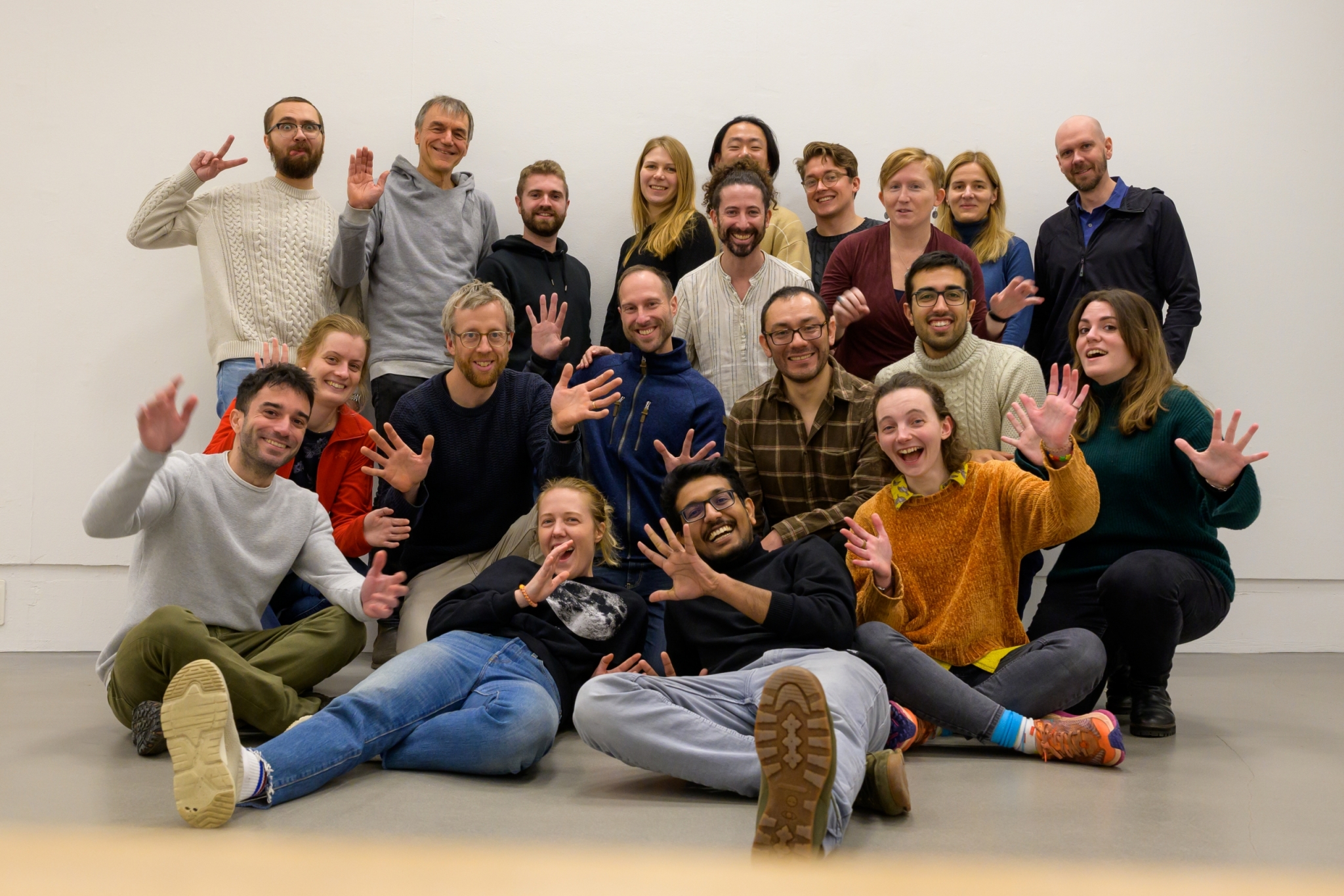Profile
(Meta)genomic sequencing is playing an increasingly pivotal role in clinical and public health microbiology. As such, the amount of publicly available (meta)genomic data derived from microbes—including pathogens—is growing rapidly. Laura Carroll’s research group develops and utilizes bioinformatic approaches, which can leverage these massive data sets to improve pathogen surveillance, source tracking, outbreak detection, and risk evaluation efforts.
Laura grew up in a small town in Michigan’s (very remote, very beautiful, and very snowy) Upper Peninsula—a less populated, American version of Umeå. She moved eight hours away to attend Michigan State University, where she graduated in 2014 with a Bachelor of Science degree in Genomics and Molecular Genetics, as well as a Bachelor of Arts degree in History. She received her doctorate from Cornell University in 2019, where she received a National Science Foundation Graduate Research Fellowship Program (NSF GRFP) award to study the genomics and epidemiology of foodborne pathogens under the direction of Dr. Martin Wiedmann. She additionally spent her graduate years as a research intern at IBM Research Almaden and as a visiting NSF Fellow at ETH Zurich in Basel, Switzerland. From 2019 to 2022, she worked as a postdoctoral fellow in Dr. Georg Zeller’s computational metagenomics group at the European Molecular Biology Laboratory (EMBL) in Heidelberg, Germany.
In 2022, Laura was hired as a Fellow through Sweden’s SciLifeLab and Wallenberg National Program for Data-Driven Life Science (DDLS), a 12-year initiative aimed at recruiting and training the next generation of data-driven life scientists. Currently, as a DDLS Fellow in Umeå University’s Department of Clinical Microbiology, Laura’s research group develops and deploys (i) phylodynamic models, which can be used to track the evolution and transmission of zoonotic pathogens between animal reservoirs and the human population; (ii) machine learning approaches, which can be used to identify microbial genomic determinants associated with phenotypes of clinical and industrial importance (e.g., host disease states, antimicrobial resistance phenotypes); and (iii) multi-omics methods, which can be used to predict pathogen virulence potential. She is also passionate about bridging the gap between experimental and computational microbiologists by making (meta)genomic data analysis methods accessible and approachable to all through teaching and outreach.
When she’s not playing around with (meta)genomic data, Laura enjoys swimming, hiking, camping…and any activity that revolves around food or cats!
Current Projects
The Latest Posts
This Icelabber hasn’t posted yet, but read these while you wait for the first post.


